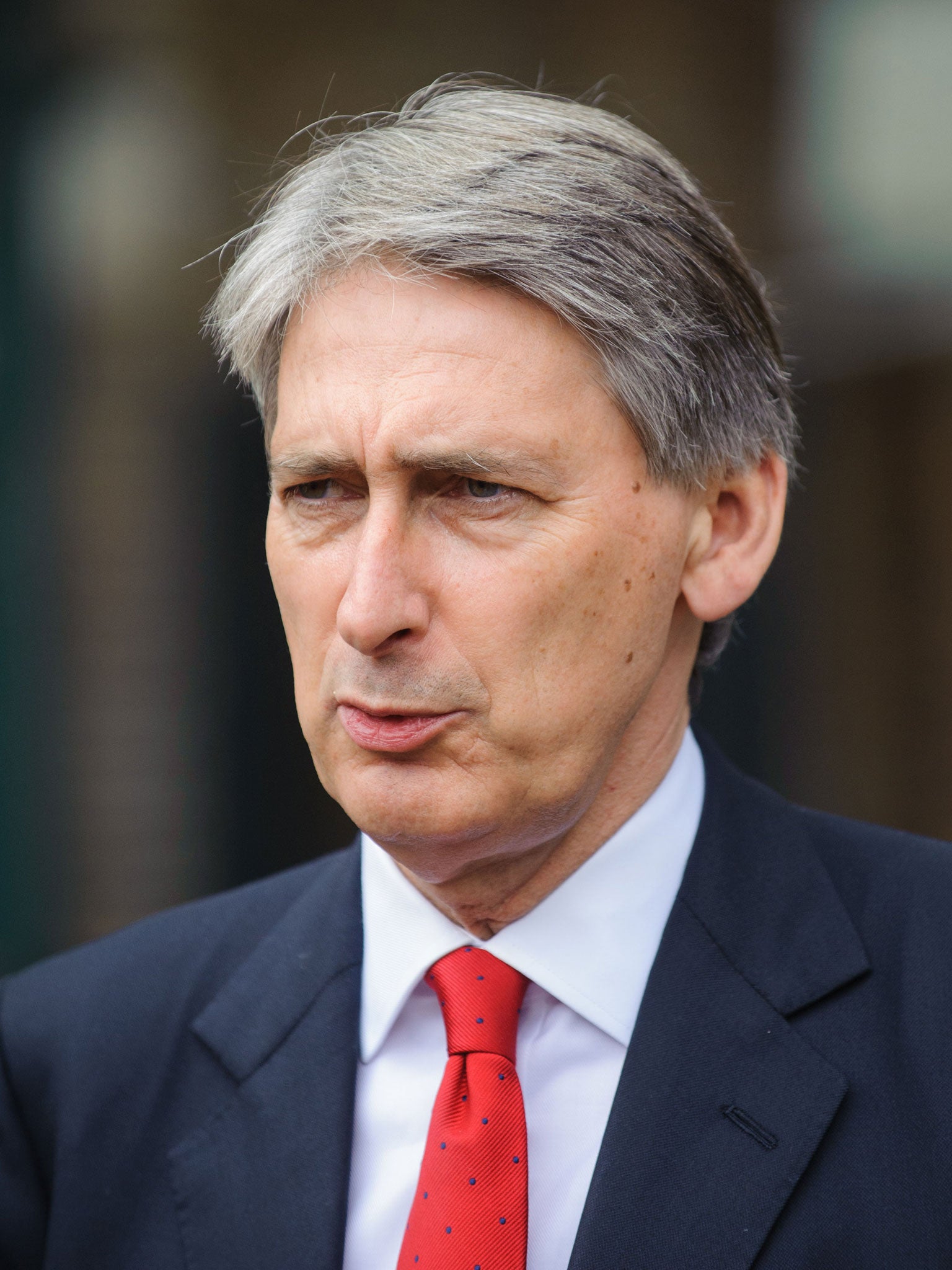New data powers to access email and social media records would stop terrorists, says Philip Hammond

Your support helps us to tell the story
From reproductive rights to climate change to Big Tech, The Independent is on the ground when the story is developing. Whether it's investigating the financials of Elon Musk's pro-Trump PAC or producing our latest documentary, 'The A Word', which shines a light on the American women fighting for reproductive rights, we know how important it is to parse out the facts from the messaging.
At such a critical moment in US history, we need reporters on the ground. Your donation allows us to keep sending journalists to speak to both sides of the story.
The Independent is trusted by Americans across the entire political spectrum. And unlike many other quality news outlets, we choose not to lock Americans out of our reporting and analysis with paywalls. We believe quality journalism should be available to everyone, paid for by those who can afford it.
Your support makes all the difference.Proposed powers for police and security services to access email and social media records would help prevent terrorists causing mayhem and murder on Britain's streets, Defence Secretary Philip Hammond said today.
Mr Hammond added his voice to Home Secretary Theresa May's drive to resurrect the Communications Data Bill in the wake of the killing of Drummer Lee Rigby in Woolwich last week.
His comments came after Conservative former police minister Nick Herbert branded Deputy Prime Minister Nick Clegg "irresponsible" for vetoing the Bill's inclusion earlier this month in the Queen's Speech setting out the Government's legislative agenda for the coming year.
The controversial legislation would require internet companies to retain records of emails and social media messages for a year and allow police and security agencies to access the data, but not the content of messages. Critics have branded it a "snooper's charter" and argue it would infringe privacy and act as a recruiting sergeant for terror groups.
But Mr Hammond argued that it would help preserve civil liberties by protecting citizens and troops from the threat posed by violent extremists.
The Defence Secretary told LBC 97.3 radio's Nick Ferrari show: "Once a suspect is detained, the urgent need is to discover who else is in his network and who else might be about to commit a similar act.
"The danger that we've got, as technology develops, more and more communications are carried out over the internet, Voice Over Internet Protocols, Skype and so on, that the police and security services lose that ability to track that traffic.
"Of course, we have to do this in a way that is sensitive to the concerns about preserving civil liberties. But we preserve our civil liberties by making sure that those who want to murder our citizens and soldiers on our streets can be tracked and monitored and dealt with so that can't cause that kind of mayhem."
Mrs May made clear at the weekend that she wants to revive the legislation, telling the BBC: "I'm clear the law enforcement agencies, the intelligence agencies need access to communications data and that is essential to them doing their job."
Her call was backed by Labour's former home secretary Lord Reid and ex-security minister Lord West, as well as Liberal Democrat peer and former reviewer of anti-terror legislation Lord Carlile.
But Mr Clegg has set his face against the bill, leading some Tories to speculate that he might retaliate against any Conservative bid to resurrect it by telling his Lib Dem MPs to vote with Labour for a mansion tax.
Mr Herbert, who served as police minister under Mrs May from 2010 to 2012, said that opposition to the bill was driven by "paranoid libertarianism" and accused its critics of "missing judgment".
Writing in The Times, Mr Herbert said: "Nick Clegg is being irresponsible in preventing the Government from bringing the measure forward."
He added: "To claim that letting the security agencies find out who terrorist suspects have been talking to is as evil as hacking down an unarmed soldier is a sign of missing judgment.
"The call, after the murder of Drummer Lee Rigby, to revive a Government bill that would allow the authorities to monitor the online activity of possible terrorists has been met with a paranoid libertarianism that denies any sense of proportion.
"Using new technology to intercept terrorist plots doesn't recruit terrorists. It jails them."
Emma Carr, deputy director of privacy and civil liberties campaign group Big Brother Watch, said: "Mr Herbert is engaging in exactly the kind of ill-informed knee jerk the Prime Minister warned against.
"The mature response is to calmly review the facts when they are known and ask whether the Communications Data Bill is the best use of billions of pounds when the security services are already struggling to find the resources to deal with the data they already have."
PA
Join our commenting forum
Join thought-provoking conversations, follow other Independent readers and see their replies
0Comments